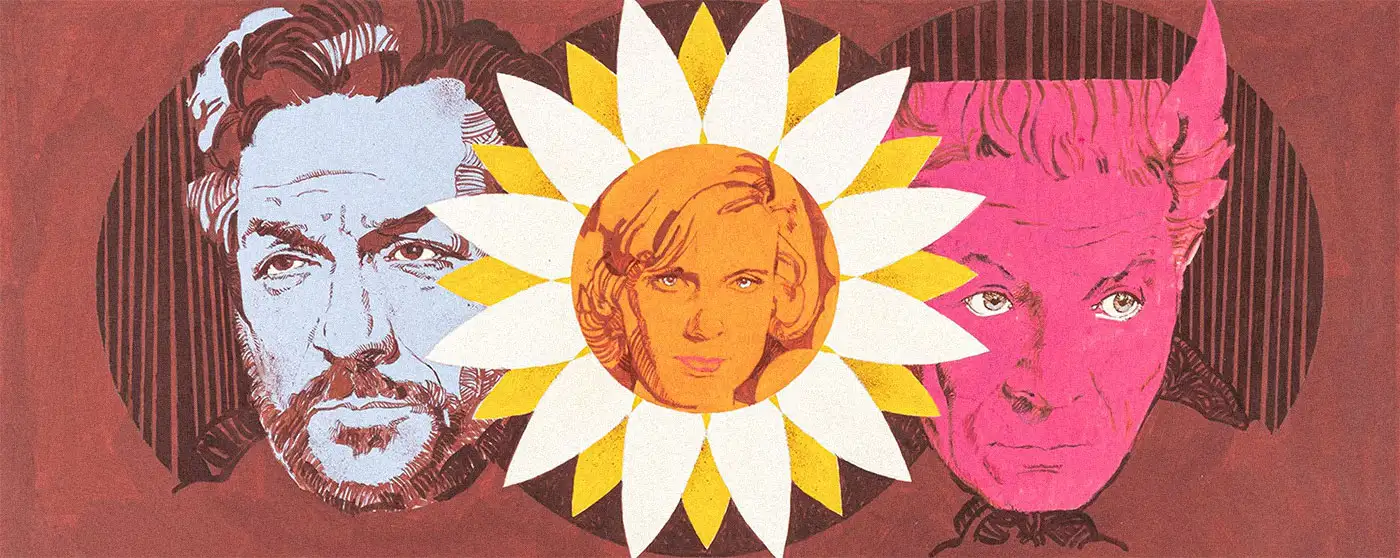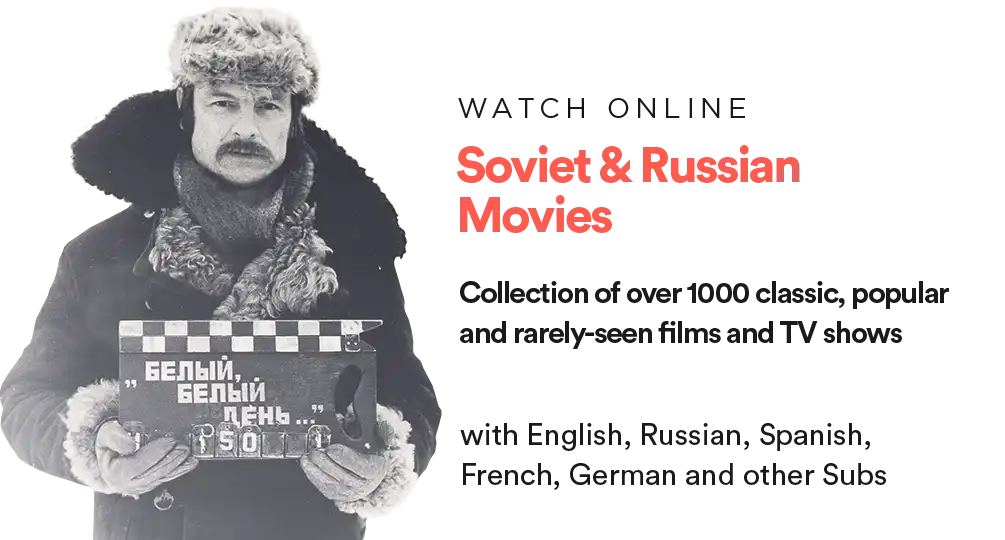“Who still believes in God or the Devil?”, “Who rules this world, if there is no God and man is mortal?”, “Who approved this script?”
01.11.2023

The film from 1972, directed by Aleksandar Petrović — “The Master and Margarita” represents, according to Mikhail Bulgakov’s literary template, multidimensionality, general and concrete, eternal and current, religious-philosophical and political statement in the search for truth as the capital theme. The novel and film story expose the splendour of mysticism, overpower the forces of realism and react strongly when reality becomes impossible and unbearable. The prism of Petrović’s film is three-layered and consists of three keys: the first is the artistic and rebellious layer of the film, the theatrical performance of the “Pontius Pilate” within the film; the second is the arrival of the devil in the city, the appearance of doctor Woland in Moscow — the professor of black magic or Mephistopheles himself; while is the third layer is of the milieu of magical love between the Master and Margarita. The film, an unusual treatment of an extraordinary classic, is the response of the cineastes of the Yugoslavian Black Wave to the regime and censorship of its time. This Yugoslavian “Master and Margarita” tells the story of a depiction of the fate of man and especially the fate of artists in authoritarian and unfree social situations, just as well as mystical and comic mockery of reality in the dark age of belief in the irrational, and the theme of art in the service of government and the seduction of the wild masses. The third layer glorifies the eternal power of love.
It all begins when, in addition to Shakespeare’s “Hamlet” and “King Lear”, “The Petty Bourgeois” by Maxim Gorky and Sophocles’ “Philoctetes”, the premiere of the play “Pontius Pilate” by the author and protagonist – the master, the Maestro, Nikolai Afanasievich Maksudov, is scheduled. Through a biblical allegory, this piece calls for the resurrection of a new age and doesactically conveys the message that all power is violence against people. Patriarch ponds, red velvet theatre curtains, the crucifixion of artists, absurdity and madness indicate that something is rotten in the Union of Proletarian Writers. The play gets banned before the premiere. Although it was never actually performed in public, the city flooded the negative theatre reviews for the unacted play, which were written by sold souls and consciences in the shackles of artistic censorship. The only person who recognizes Maksudov and his play is Margarita Nikolaevna, the girl with the yellow flower, all like an apparition, the writer’s own Beatrice. Love is born in the age of evil and chaos. A Faustian play unfolds on the screen, processed not only in Bulgakov’s way but also in Petrović’s way. Injustice is denounced and intervened by Woland, who here (in Goethe’s terms) belongs to that force that eternally strives for evil but perpetually creates good. Each character meets their fate, which turns out, grotesquely ( comically and tragically), to be at the hands of Woland and his odd assistants: Azazel and Behemoth. The multi-layered structure of the work will be solved in a fairy-tale way, with a spectacle show, punishment of the wicked, freedom and the triumph of love. At the same time, there is a victory of evil with God’s permission?

Cold and snow-covered days, scenes from Moscow churches, the enigmatic image of the Gospel, atheistic questioning of the existence of higher intelligence (because if there is no God, then there is no Devil), the bright sun of Yalta and spilt sunflower oil, are also witnesses to the strange circumstances of the book in the film lens of director Petrović. Scenes in the cinematographic part show that the deus ex machina is the writer and director himself. The narration technique in the film is interesting. The camera movement is specific. The images of the urban and the folklore, the ordinary and the symbolic, the live and the dead, the tragic and the comic indicate the golden age of cinematic conceptualization. The co-production of Euro International Film and Dunav Film, Yugoslav and Italian film productions and artists select a group of leading domestic film actors of the last century such as Velimir Živojinović, Pavel Vuišić, Ljuba Tadić, Bata Stojković together with world actors such as the Italian artist Ugo Tognazzi, the French Alain Cuny and the American actress Mimsy Farmer in the role of Margarita. One of the most captivating elements of the film is its music, which was composed by the famous Italian composer Ennio Morricone, known and celebrated for his work on great film achievements such as “Once Upon a Time in America”, “The Good, the Bad, the Ugly” and “The Hateful Eight”, “Malena”, “Cinema Paradiso”, “Lolita”…
Beheaded heads, forbidden Russian scripts written on the walls, the story of bandits and traitors before the Last Judgment, and the same burned manuscripts that “were spoken about in the beginning” were found in the place, time and action of artistic bloodshed and an extraordinary cinematic performance. Manuscripts do not burn. Nothing is a matter of chance. Where justice and laws are mutually exclusive variables, the irony of fate flares up. The revolution gets betrayed with malevolence. The world fell away from God. Christ’s place was occupied by the statesmen. The mass hypnosis of this provocative piece reveals to us the deeper truth of man, life and the world — the necessity of faith. What do we have left of everything? Dirty hands and broken illusions? Are we equally driven against the wall? Does Petrović’s film teach us well enough to distinguish a lie from the truth?
Emilija Kvočka
Useful Links
- “The Master and Margarita” on IMDb – Get additional details about the cast, crew, trivia, and more on the Internet Movie Database.
- Aleksandar Petrović on IMDb – Explore more about director Aleksandar Petrović filmography and biography.
- The Master and Margarita” on FilmAffinity – Delve into user ratings and reviews.


















